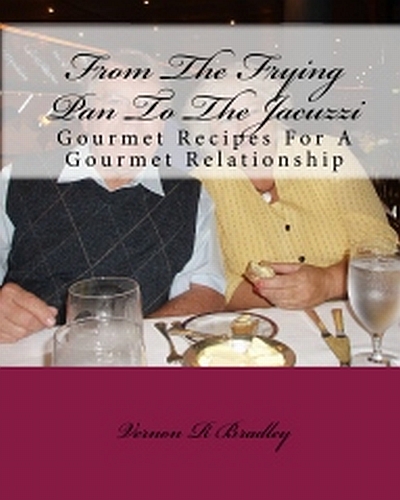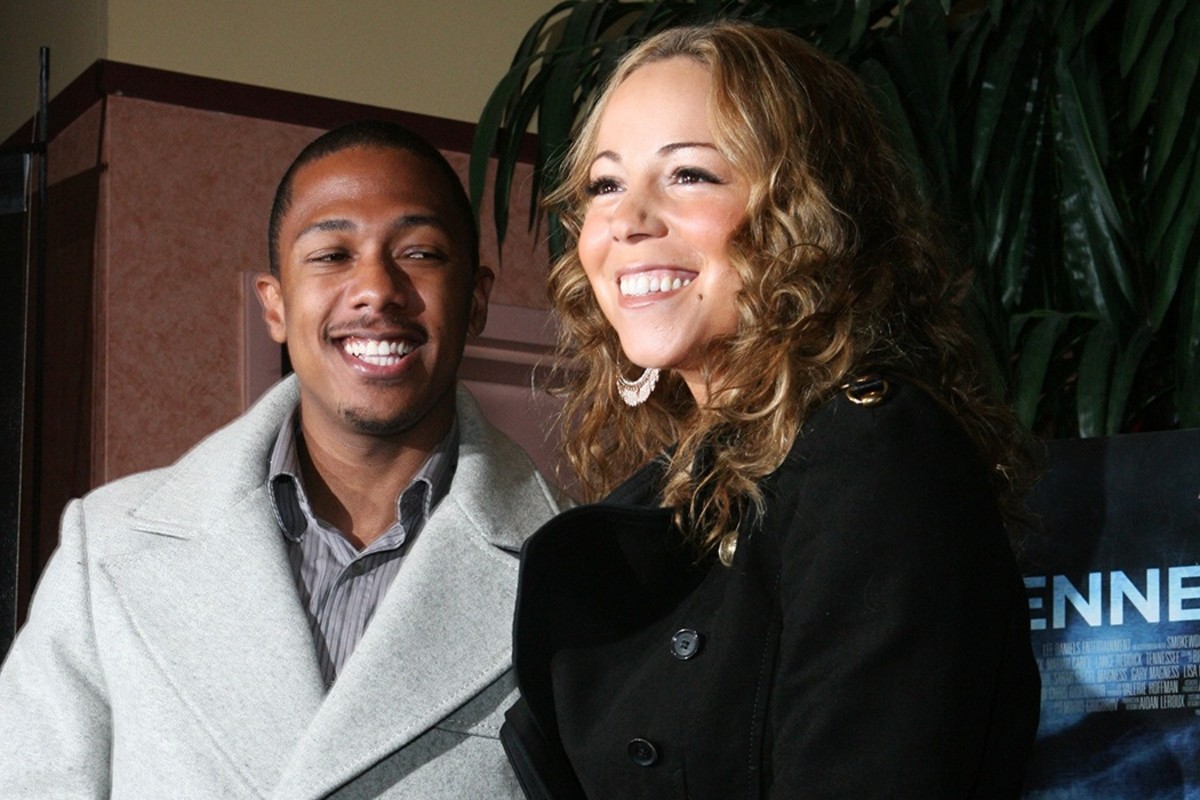INTIMACY, IMPRISONMENT OR HOSTAGE CRISIS

INTRODUCTION
I have a FACEBOOK page dedicated to my book, From The Frying Pan To The Jacuzzi. I am generating some discussion about the book on both Hubpages and Blogspot. I welcome and encourage your discussion both here and on Facebook.
CHAPTER ONE, PAGES 1, 2
Why would such a wonderful experience like intimacy feel like imprisonment? A very good question. It’s not a simple answer. But for whatever reason, intimate (not inmate) relationships trigger a lot of OLD STUFF. Whatever we experienced in those primordial relationships, for better for worse, it all gets triggered when we engage in an intimate relationship....An intimate relationship starts out all “cool” and all “hot” at the same time. But then something happens....The relationship is no longer fun. Worse, the relationship becomes painful....
I wrote these words on the first pages of my book, thinking about the many couples who fall in love, really fall in love, but eventually go through a period of disillusionment. But when they hit that period of disillusionment some years down the road, they can look back and remember truly falling in love, and often have a desire to recapture those days. But this disillusionment, a part of any relationship, may feel like a kind of imprisonment and may be difficult to navigate out of.
You may still be wondering what the heck is a primordial relationship? Primordial relationships are relationships with Mom and Dad or other significant parent figures. And the OLD STUFF? The “wounds” that we all experience just because it is not a perfect world. This is not about being a victim or parent bashing, but simply being aware of what it is we bring to the table in a relationship and knowing clearly where we deserve healing in our life.
Whatever wounds we experienced with Mom and Dad or other significant adult figures in our childhood stay with us unless, as adults, we take the time to bring the wounds into our consciousness and find a way to heal them. The intimacy in our adult relationships triggers either the wounds themselves, especially if our partner is very much like one of our parents, or it triggers the fear of being re-wounded. Again, we are going to tend to choose to be in relationship with folks who are familiar to us, so they will at least in some way or another resemble either mom or dad or perhaps both. They will resemble them just enough to give some credence to our fear of being re-wounded.
The old stuff tends to bring confusion to our relationship. We begin to mistake our partner for Mom or Dad, and so we become perhaps unnecessarily reactive to our partner, making sure that they don’t hurt us, or becoming angry with them because they do hurt us or disappoint us, let us down, end up treating us the way Mom or Dad did, or at least treating us like a kid rather than as an equal partner in the relationship.
I wrote From The Frying Pan To The Jacuzzi to provide couples “recipes” for moving out of disillusionment or imprisonment, if you will. I wanted to reach those couples who wanted to stay together and give them a guide for exploring their respective baggage, and then invite them to literally take all that old stuff to the dump! I wanted couples to know that they could stop cluttering up and burying their relationship with all this old stuff. I wanted them to see how perhaps they had imprisoned themselves, locked themselves in their own cells as a way to survive the disillusionment and hurt. I wanted them to know that their relationship could be set free so they could do more than just survive but actually fall in love again and have their relationship flourish.
When I wrote From The Frying Pan To The Jacuzzi , I wasn’t paying attention to another group of couples out there who enter into relationships thinking that they really are in love, and perhaps they are, but within very short order find themselves hostages, hostage to their partner or to the relationship. It’s almost like they never reach a stage of disillusionment and there is no moment of love to look back on. Each moment of the relationship experience is a hostage crisis, either from the perspective of a hostage or from the perspective of the hostage taker.
For whatever reason, couples who are in hostage relationships continue on with the relationship like it is a sentence that needs to be completed at all cost. So talk about imprisonment! Very early on in the hostage crisis, their hearts become frozen, locked away, imprisoned, if you will, again for the sake of survival. I do not know at this very moment if this kind of relationship can be freed and revived. This is new “stuff” for me. It is new for me because in recent months, I had to come to terms with the fact that this was the kind of relationship I was living in.
How would one know if they are in a hostage relationship? Here are some awarenesses that I have come to as of late.
In the extreme situation one or both partners act out by throwing things at each other including hot plates of food, cups of hot coffee, or literally “wiping off” a counter top or desk top. But beneath the obvious, there are more fundamental ingredients.
Early on in this kind of relationship, partners become an embarrassment to and for each other. There is a loss of both self respect and respect for the partner. They live a front or attempt to live a front, but those close to them can see and feel the misery, the tension, the criticism, the agonizing distaste for each other. There is rarely a kind word. There is little attention to each other’s needs, but more focus on surviving in whatever way each person can. Each will get deeply involved in separate endeavors which are definitely worthwhile, but the endeavors serve no purpose to the life of the relationship.
But for whatever reason, life as a hostage or a hostage keeper is secure, familiar, and almost comforting, at least compared to facing the truth. The truth? Namely, we do not like each other. We may, in fact, love each other, if such a phenomenon is possible, to love someone while completely and totally disliking them. And we definitely completely and totally dislike each other. We do not enjoy each other’s company let alone each other’s point of view, perspective, sense of humor, interest, television shows, tastes in food, movies, art, music, and a myriad of other interests and activities. We are easily distracted when the other person is talking. We have no desire to stop what we are doing to engage in conversation or an activity. Well, we might if we can be in control of the conversation or activity, but our skills in reciprocity, in giving and receiving (not taking) are just about nil. In fact, we DO operate ONLY on a give and take basis and so the relationship is always at zero. This give and take provides a kind of competitiveness in the relationship that neither of us can make sense out of. Everything the partner does or says poses some kind of threat or reason for jealousy. We are constantly interrogating each other, constantly preoccupied with what the other person is doing. We are angry with each other most of the time.
We are also afraid to stand on our own two feet, and our need for each other is not based upon giving and receiving, but a sense that we will die without the other. We will not know what to do with ourselves alone. We are scared we will not be able to support ourselves financially. We are too frightened to take on the world out there, even though we might, in reality, be quite successful in that world already. We misinterpret every look on each other’s face. We are constantly wondering what is wrong with our partner and trying to convince him or her that there is something wrong with them that needs to get fixed, and if they would only fix it, our relationship would be wonderful, at least I would be happy, forget about if we are happy.
So how do we get into this kind of relationship? Most likely we are already familiar with living as a hostage and so consequently, perhaps unconsciously, seek it out.
We grew up and lived in a family where we were hostage to one or more family member’s alcoholism, drug addiction, or mental illness. You began to consider “normal” what is anything but normal. For example, I heard someone in an Al-Anon meeting share that they knew they could not ask someone at the dinner table, say, to pass the salt. You would get the response, “Get it yourself.” Another person shared that a sibling would freak out because everyone chewed their food too loudly. Someone else shared that there was no talking at the dinner table period, because it would interfere with Dad’s television show, and if you did talk, he became really really angry.
In a hostage situation, neither children or adults are allowed to have friends over let alone go to friend’s houses. There is almost a rule against any communication and interaction with anyone outside the immediate family. Every aspect of family life is tightly, I mean tightly, controlled. Sometimes, hostage families move a lot. If you ask them now, why they moved so much, they can’t tell you. Sometimes, they live separately, like out in the country. That’s not to say or even imply that any family who live on a farm or out in the country is a hostage family. That just isn’t the case, obviously.
It might appear in any given situation that one person in the relationship is the hostage and the other is the hostage taker. But relationships are just that, relationships. So whatever role you might play, you must take full responsibility. If you have been a hostage, then that is what you chose. And if you are a hostage taker, then that is what you chose.
Difficult to swallow, but taking that level of responsibility is the only way to life.
Not every hostage relationship will have each and every ingredient described above, but if when you read this material, you find something stirring inside of you, then it’s a good bet, you are and have been living in a hostage crisis even if every thing described here doesn’t match up perfectly.
And rest assured, this is not about intelligence. I am a very intelligent person. I am a skilled therapist, a writer, a trainer, a teacher. I am a wonderful man. But that did not prevent me from making a commitment to a hostage crisis. And there is no blame here. It happened, and I am grateful that I was asked to leave. It took me four months to leave. I was stubborn. I thought we could make it work. But leaving is what brought all the insanity to an end. And now I am working on all those issues, the OLD STUFF, so I will not spend any more time of my life in a hostage crisis whether as a hostage or as a hostage taker.
So what is the solution here? To be honest with you, I don’t know off the top. I imagine I will learn as I go here. My best guess, from my personal experience, is that separation may be very helpful, perhaps not absolutely necessary, and in addition, each person working a significant “program” of some kind, whether it be a self help support kind of program or going to therapy or both.
WHEN IT COMES TO CHANGE
The couples who experience disillusionment may, in fact, resist change, dig in their heels, be defensive about change, struggle with change, but, at least in therapy, have enough willingness to look at change and try it on for size so that change has a chance.
The hostage folks will have no part of change. The one considered the hostage taker will avoid personal change because he or she believes that change brings blame and guilt down upon them. However, the hostage taker will often insist that the partner make changes for the sake of the relationship! Yes a double standard. The hostage taker tends not to see any issues for him or herself, but plenty of FLAWS in the partner.
For the one considered the hostage, they too are comfortable with the status quo. They keep hoping, through some miracle of the universe, that something will happen but are not sure they want to participate even if something does happen. They do not see themselves either powerful enough or something enough to bring about any significant or meaningful change, but are still not willing to exit. I guess we get used to holding our breath and forget what it was like to actually breathe and be free.
So here is the question for discussion. Yes obvious, right?
HOW DO YOU SEE YOUR RELATIONSHIP? Have you experienced disillusionment, and how did you or did you move to another phase of your relationship? Or are you in a hostage situation? Share if you will. You may help someone else by your sharing. You can participate either here or on the FACEBOOK PAGE.
THANKS FOR READING AND PARTICIPATING









